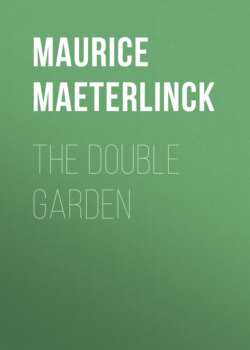Читать книгу The Double Garden - Maurice Maeterlinck - Страница 15
На сайте Литреса книга снята с продажи.
VI
ОглавлениеTable of Contents
In truth, Chance, in the sense in which the gamblers understand it, is a god without existence. They worship only a lie, which each of them pictures to himself in a different shape. Each of them ascribes to it laws, habits, preferences that are utterly contradictory, as a whole, and purely imaginary. According to some, it favours certain numbers. According to others, it obeys certain rhythms that are easily grasped. According to others again, it contains within itself a sort of justice that ends by giving an equal value to each group of chances. According to others, lastly, it cannot possibly favour indefinitely any particular series of simple chances for the benefit of the bank. We should never come to an end if we tried to review the whole illusory corpus juris of roulette. It is true that, in practice, the indefinite repetition of the same limited accidents necessarily forms groups of coincidences in which the gambler's deluded eye seems to discern some phantom laws. But it is no less true that, upon trial, at the moment when you rely upon the assistance of the surest phantom, it vanishes abruptly and leaves you face to face with the unknown which it was masking. For the rest, most gamblers bring to the green cloth many other illusions, conscious or instinctive, and infinitely less justifiable. Almost all persuade themselves that Chance reserves for them special and premeditated favours or misfortunes. Almost all imagine some undefined but plausible connection to exist between the little ivory sphere and their presence, their passions, their desires, their vices, their virtues, their merits, their intellectual or moral power, their beauty, their genius, the enigma of their being, their future, their happiness and their life. Is it necessary to say that there is no such connection; that there could be none? That little sphere whose judgment they implore, upon which they hope to exercise an occult influence, that incorruptible little ball has something else to do than to occupy itself with their joys and sorrows. It has but thirty or forty seconds of movement and of life; and, during those thirty or forty seconds, it has to obey more eternal rules, to resolve more infinite problems, to accomplish more essential duties than would ever find place in man's consciousness or comprehension. It has, among other enormous and difficult things, to reconcile in its brief course those two incomprehensible and immeasurable powers which are probably the biform soul of the Universe: centrifugal force and centripetal force. It has to reckon with all the laws of gravitation, friction, the resistance of the air, all the phenomena of matter. It has to pay attention to the smallest incidents of the earth or sky; for a gambler who leaves his seat and imperceptibly disturbs the floor of the room, or a star that rises in the firmament, compels it to modify and begin anew the whole of its mathematical operations. It has no time to play the part of a goddess either well or ill-disposed towards mortals; it is forbidden to neglect a single one of the numberless formalities which infinity demands of all that moves within it. And, when, at last, it attains its goal, it has performed the same incalculable work as the moon or the other cold and indifferent planets that, outside, above, in the transparent azure, rise majestically over the sapphire and silver waters of the Mediterranean. This long work we call Chance, having no other name to give to that which we do not as yet understand.
IN PRAISE OF THE SWORD!
